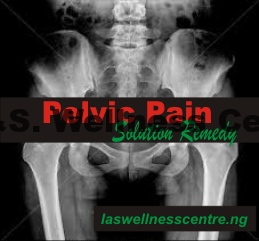Pelvic Pain caused by Fibroids and Endometriosis
Fibroids can cause severe menstrual pain, but so can endometriosis. What’s the difference between these two conditions?
Uterine fibroids are benign lumps of muscle and connective tissue that grow on the uterine wall. Nearly one in four women over 35 is affected. They can be tiny like apple seeds or big like grapefruits and several can occur at once.
Most uterine fibroids are harmless and don’t cause symptoms. However, fibroids can cause a feeling of moderate pelvic pressure at any time. And the closer they are to the uterine lining, the heavier the menstrual flow. It may last longer than seven days and/or cause a need to change tampons every hour or two.
SYMPTOMS
This may include: Discomfort or pain during intercourse can also occur with uterine fibroids.
Other symptoms include an irregularly shaped uterus which may put pressure on the bowel and/or bladder. This can result in difficulty with bowel movements, constipation, urinary frequency, incontinence and backaches.
SYMPTOMS ON REPRODUCTION include recurring miscarriage, infertility and labor complications.
Fibroids can be removed via laparoscopic or robotic surgery. The blood supply to fibroids can be severed with endometrial ablation or by removing the entire uterus.
Anti-estrogen hormone treatments can shrink fibroids but due to their side effects, both options are secondary.
Endometriosis is a condition where the type of tissue that lines the uterus also grows outside the uterus, usually on the ovaries, the fallopian tubes, the outer wall of the uterus, the intestines, or other organs in the abdomen.
Since they are the same type of cells that usually line the uterus, they respond to estrogen and grow a little each month and sometimes slightly bleed. As this tissue is outside of the uterus, blood cannot flow out of the body and therefore can cause irritation and pain.
This painful condition affects up to one in three women. Unfortunately it takes an average of 10 years to diagnose endometriosis after symptoms start, partly because so many women think it’s merely severe menstrual cramps.
Symptoms may include heavy periods, painful menstrual cramps, bloating, constipation and/or diarrhea.
Many experience pelvic pain that stretches down the back, down the legs or into the vagina or rectum. Women may endure pain with urination, bowel movements, as well as during or after sexual intercourse.
Endometriosis can also cause infertility.
OUR ADDRESS:
3rd Floor, 473, Lagos-Abeokuta Express Way, Old UBA Building Beside NNPC,, U-turn Bus Stop, Abule Egba, Lagos, Nigeria.
Mon – Friday (9.00 a.m. – 5.00 p.m.) Nigerian Time
Saturday (10.00 a.m. – 2.00 p.m.) Nigerian Time
Our Office is Close on Sunday but you can Whatsapp, Call, Email Us.
WHATSAPP: (+234)-8038690104
CALL: 08038690104 OR +234-8038690104
EMAIL: [email protected]
Website: www.iaswellnesscentre.ng
At I. A. & S. Wellness Centre, we have well trained staff members to guide you.
We are:
- Member National Association of Nigeria Traditional Medicine Practitioners (NANTMP),
- Member Association of Commonwealth Traditional Medicines Practitioners for West Africa
- We also have trained Acupunturists and TCM experts
OTHER TREATMENT WE OFFER:
The following are some of the treatments we offer Alphabetically (A-Z):
- Abdominal pain Natural treatment
- Abnormal Vaginal bleeding Natural treatment
- Acquired Immunodeficiency Syndrome(AIDS) natural treatment
- Adhesion natural treatment
- Amenorrhea Natural treatment
- Anemia natural treatment
- Arteriosclerosis and Atherosclerosis Natural treatment
- Appendicitis Natural treatment without surgery
- Asthma Natural treatment
- Candidiasis Natural treatment
- Cancer Natural treatment
- Cervical Polyps Natural treatment
- Cholesterol Natural treatment
- Chlamydia Infection Natural treatment
- Fibroids Natural Treatment (without surgery)
- Female Infertility Natural treatment
- Fibrocystic Breast Natural Treatment
- Male infertility Natural treatment
- Menopause Natural treatment
- Mouth odor and Cancer Natural treatment

